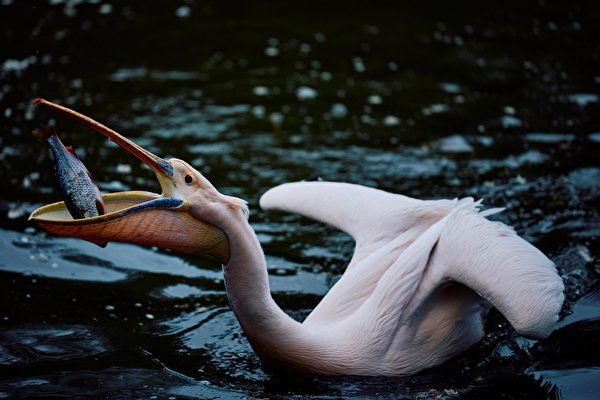The article reports a rare sighting captured in Africa, showing a large waterbird known as a cormorant struggling to swallow a catfish it caught. The cormorant, known for its fishing prowess, encountered difficulties swallowing the catfish immediately due to the fish’s attempts to wriggle free. After 15 minutes of effort, the cormorant successfully managed to swallow the catfish.
According to a report from “Latest Sightings” website on April 11, a guide named Michael Laubscher witnessed and shared this incident while leading a hunting expedition in Kenya.
The tour group’s luck seemed to be on the downside as they did not encounter any large mammals but only observed some waterbirds foraging in shallow waters of ponds. Two cormorants later arrived, causing the other birds to disperse.
Laubscher mentioned that both cormorants were also foraging in the shallow waters. One of them found a sharp-toothed catfish and effortlessly captured it in its massive beak.
The cormorant’s gular pouch serves various purposes. Apart from acting as a fishing net, it also stores food to feed the young birds, and on hot days, it helps in cooling off.
Although a cormorant’s gular pouch can hold up to 11 liters of water, the catfish caught by the bird was too large and slippery, constantly wriggling, making it challenging for the cormorant to swallow it smoothly. It had to adjust its posture and angle repeatedly, hoping to let the catfish slide down its throat.
Meanwhile, the other cormorant ceased fishing and watched on. It seemed eager to seize the opportunity to steal the food its companion was struggling to swallow, patiently waiting for a chance.
The cormorant that caught the catfish remained persistent, continuously making attempts. After 15 minutes of effort, it finally managed to swallow the catfish. Upon standing up from the pond, it moved its body, appearing content after a satisfying meal.
Cormorants primarily feed on fish but are not selective eaters, also consuming crustaceans like shrimp and crabs. They are adept at fishing in lakes, rivers, and even sea waters.
In a previous report by Epoch Times, in February 2020, a cormorant in Florida mistakenly swallowed a woman’s cellphone, mistaking it for a fish. It felt unwell, but thanks to conservationists who helped retrieve the phone from its stomach, the bird recovered its health.

